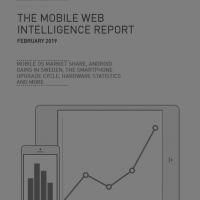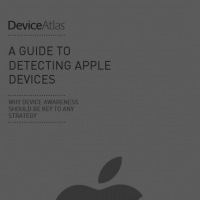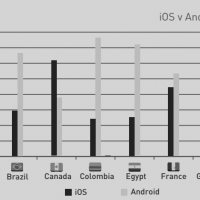Tag Archives: Device Detection
The latest DeviceAtlas report investigates Android gains in Sweden and the smartphone upgrade cycle
February 25, 2019, by James Kielty
DeviceAtlas have released their latest Mobile Web Intelligence Report. This report looks at shifts in the mobile OS landscape over 2018, highlighting some interesting trends and changes. There’s also analysis of the smartphone upgrade cycle and the most common hardware specifications in 36 countries. Android v iOS 2018 was a turbulent year for both operating... Read More
The DeviceAtlas guide to detecting iPhones
January 3, 2019, by James Kielty
The latest DeviceAtlas whitepaper explains the difficulty around accurate device detection of iOS devices. In all Apple devices, the User-Agent string only indicates the hardware type, not the model. By parsing User Agents alone, all you’ll know is whether you’re dealing with an iPhone or an iPad. This leaves some useful properties outside your field... Read More
OS landscape shifts as Google & Apple bet on emerging markets
September 27, 2018, by James Kielty
The latest DeviceAtlas Mobile Web Intelligence report shows a resurgence in the use of feature phones, which have eaten into smartphone share in some markets. The report also revealed the popularity of dual SIM phones with rumors of support for this in new versions of iOS. There’s still life in older feature phones With Android... Read More
Your most frequent visitors don’t benefit from your AMP pages
November 29, 2017, by Ruadhán O'Donoghue
With the most common AMP configuration, your most frequent visitors will get a worse experience than drive-by, random visitors. How can this be? Default AMP setup The most common, default, setup for AMP pages is to deploy them alongside your existing non-AMP site. You add a <link rel="amphtml" ...> tag to your existing pages that... Read More
User Agent parsing: how it works and how it can be used
July 20, 2017, by Martin Clancy
The User-Agent is a central piece of web architecture and plays an important role in content negotiation. It was created with the express intention of building the ability to address users making requests with different clients or ‘agents’ differently, depending on capabilities or context. This article will answer many of questions you may have around... Read More











